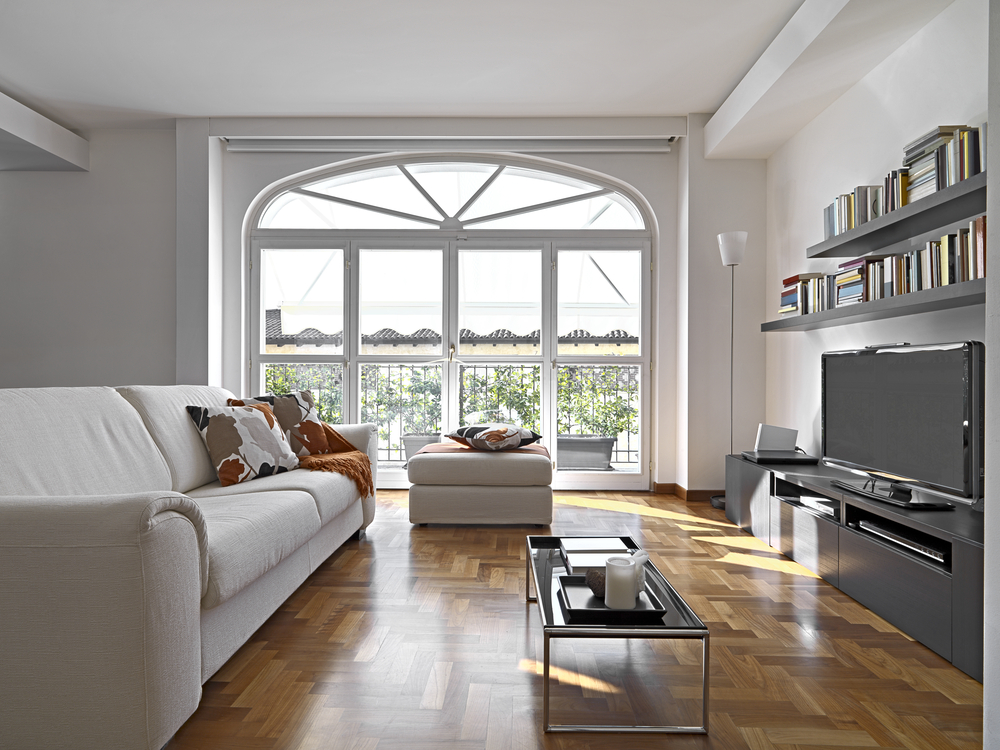Importance of Home Ventilation With Hardwood Floors

Home ventilation plays a crucial role in maintaining a healthy and comfortable living environment, especially when it comes to homes with hardwood floors. Proper ventilation not only preserves the beauty and longevity of hardwood flooring but also ensures a healthier indoor air quality for the residents. This article explores the importance of home ventilation with hardwood floors, highlighting the benefits it brings to both the flooring and the overall living environment.
The Relationship Between Hardwood Floors and Indoor Air Quality
Hardwood flooring is a popular choice for many homeowners due to its durability, aesthetic appeal, and timeless elegance. However, maintaining hardwood floors in pristine condition requires more than just regular cleaning and occasional refinishing. Adequate ventilation is essential to prevent moisture buildup, reduce the risk of mold growth, and control indoor air quality.
In homes with poor ventilation, moisture levels can fluctuate significantly. High humidity levels can cause hardwood floors to absorb moisture, leading to expansion, warping, and even damage to the flooring. Conversely, low humidity can cause the wood to dry out and shrink, resulting in gaps between the planks. By ensuring proper ventilation, homeowners can maintain a consistent indoor environment that helps preserve the integrity of their hardwood flooring.
Benefits of Proper Ventilation for Hardwood Flooring
One of the primary benefits of proper ventilation in homes with hardwood floors is the prevention of moisture-related issues. Moisture is one of the biggest enemies of hardwood flooring, as it can lead to a range of problems, including cupping, crowning, and buckling. Adequate ventilation helps to regulate humidity levels, preventing excess moisture from seeping into the wood and causing these issues.
Another significant advantage of proper ventilation is the reduction of indoor air pollutants. Hardwood flooring, especially during the installation and refinishing processes, can release volatile organic compounds (VOCs) into the air. These compounds can have adverse health effects, including respiratory problems and allergies. Good ventilation helps to disperse these pollutants, ensuring that indoor air quality remains safe and healthy for the occupants.
Proper ventilation also aids in the control of odors. Homes with poor ventilation often experience stagnant air, which can lead to unpleasant smells lingering in the living spaces. This is particularly important for homes with pets or where cooking odors can accumulate. By ensuring a steady flow of fresh air, homeowners can keep their indoor environment smelling fresh and clean.
Hardwood Refinishing and the Need for Ventilation
Hardwood refinishing is an essential process to restore the beauty and extend the lifespan of hardwood floors. During refinishing, the floors are sanded down to remove the old finish, and a new finish is applied to protect the wood and enhance its appearance. This process, however, can generate a significant amount of dust and release harmful fumes from the finishing products.
Proper ventilation is crucial during hardwood refinishing to ensure the safety of both the workers and the occupants of the home. Adequate airflow helps to clear away dust particles, reducing the risk of respiratory issues. Moreover, ventilating the area helps to dissipate the fumes from the finishing products, preventing the buildup of toxic substances in the indoor air.
Homeowners should consider using exhaust fans, opening windows, and utilizing air purifiers during and after the refinishing process to maintain good indoor air quality. Additionally, choosing low-VOC or water-based finishes can further minimize the release of harmful compounds, making the refinishing process safer and more environmentally friendly.
Long-Term Preservation of Hardwood Floors
Maintaining proper ventilation is not only important during the installation and refinishing stages but also for the long-term preservation of hardwood floors. Consistent airflow helps to prevent the accumulation of dirt and dust, which can scratch and dull the surface of the flooring over time. Regular ventilation, combined with routine cleaning, keeps hardwood floors looking their best for years to come.
In addition to preventing physical damage, proper ventilation also helps to control the temperature within the home. Extreme temperature fluctuations can cause the wood to expand and contract, leading to cracks and splits in the flooring. By maintaining a stable indoor climate through effective ventilation, homeowners can protect their hardwood floors from these damaging effects.
Practical Tips for Improving Home Ventilation
Improving home ventilation can be achieved through several practical measures. One of the simplest methods is to regularly open windows and doors to allow fresh air to circulate throughout the home. This is particularly important in areas with hardwood flooring, as it helps to regulate humidity and prevent moisture buildup.
Installing exhaust fans in kitchens, bathrooms, and laundry rooms can also significantly improve ventilation. These areas are prone to higher humidity levels, and exhaust fans help to remove excess moisture and prevent it from spreading to other parts of the home. For homes with HVAC systems, ensuring that the system is properly maintained and that air filters are regularly replaced can enhance overall ventilation and air quality.
For those living in climates with extreme weather conditions, using a dehumidifier or humidifier can help to maintain optimal humidity levels. A dehumidifier removes excess moisture from the air, preventing it from affecting the hardwood floors, while a humidifier adds moisture to dry air, preventing the wood from drying out and cracking.
Summary
Proper home ventilation is essential for preserving the beauty and longevity of hardwood flooring and ensuring a healthy living environment. By regulating humidity levels, reducing indoor air pollutants, and preventing moisture-related issues, good ventilation plays a vital role in maintaining the integrity of hardwood floors. Whether during installation, refinishing, or everyday living, homeowners should prioritize ventilation to protect their investment in hardwood flooring and enhance the overall comfort and health of their home.

